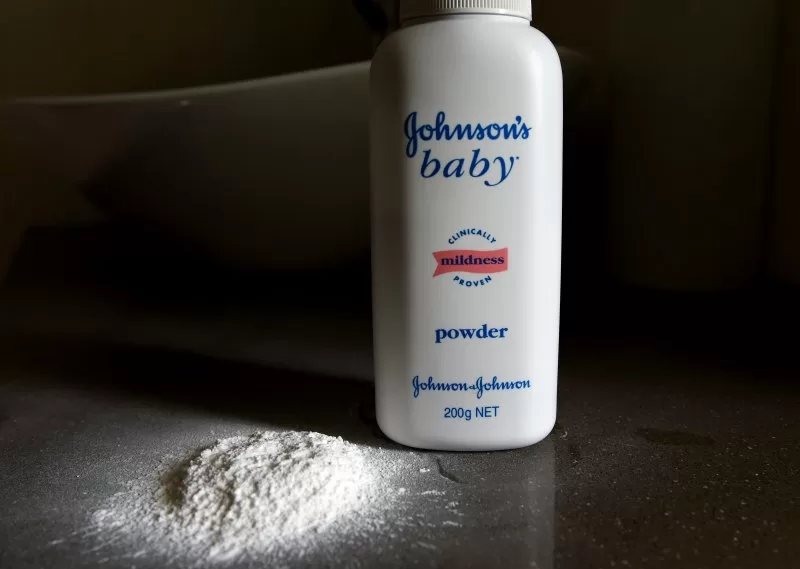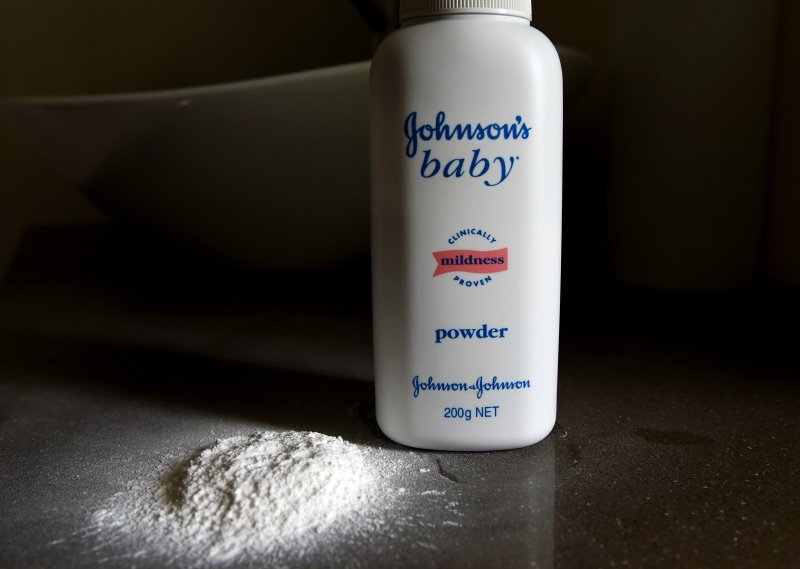Johnson & Johnson’s $6.5 billion settlement proposal — to be paid over a 25-year period — is the company’s third attempt to resolve lawsuits that claim talcum powder products are responsible for incidents of cancer. File Photo by Dan Peled/EPA
May 1 (UPI) — Pharmaceutical giant Johnson & Johnson on Wednesday said it is taking steps to resolve a multibillion dollar cancer-related lawsuit with thousands of individuals over claims that chemicals in their baby powder had caused certain cancers.
Johnson & Johnson’s $6.5 billion settlement proposal — to be paid over a 25-year period — is the company’s third attempt to resolve the lawsuits that claim talcum powder products were responsible for incidents of cancer.
As it has with every other attempt, the New Jersey-based company say it hopes that this new effort will settle all future and current talc-related lawsuits.
But the settlement — which the company plans to make happen through bankruptcy processes — first requires the consent of the lawsuit’s claimants, with a company official claiming Johnson & Johnson has “significant support of the overwhelming majority of the claimants,” adding that the company believes the deal is better for the claimants rather than taking the case to trial.
“We firmly believe this plan is in the best interest of claimants and should receive a favorable and immediate confirmation from the bankruptcy court,” Erik Haas, J&J’s worldwide vice president of litigation, said.
“At the rate at which use cases have been tried, it would take decades to try the remaining cases, meaning most claimants will never see their day in court,” he said.
Despite their denial over the cancer-causing accusations, in August 2022, J&J announced their decision to end global sales of talc-based baby powder sales, saying how they planned to transition to an all cornstarch-based product.
A year later in April, the company offered more than $8 billion to settle the thousands of claims that contended that the company’s talcum-based powder had caused cancer.
A 2019 study found that asbestos in talcum powder was linked to deadly cancer.
However, a separate study of more than 250,000 women conducted around the same time had failed to find a statistically significant connection between talc-based powders and ovarian cancer, with its own study author saying that the results were “not definitive.”
Two years ago in February, Johnson & Johnson went to court to ask a federal judge in New Jersey permission to settle almost 40,000 cases through a bankruptcy process which claimed their baby powder and other talc-based products have been shown to cause cancer.
In 2016, they were ordered to pay $55 million to a 62-year-old South Dakota woman who said she developed ovarian cancer after using baby powder, which was the second such verdict in less than three months by that point.
The company had gone through a series of related lawsuits on the cancer claims throughout 2017. But the pharmaceutical company has been at the center of lawsuits for a number of years now in general.
Last July, Johnson & Johnson had sued the Biden administration in a New Jersey federal court over drug-pricing policies mandated by the Inflation Reduction Act.
In January, Johnson & Johnson had agreed to pay a $149 million settlement brought on by Washington state’s attorney general over the opioid crisis.
But the bankruptcy process is appealing for Johnson & Johnson because it favors their ability to end such ongoing and future legal litigation.
“The ability of bankruptcy law to force that 25 percent to accept a deal impacting their rights — current and future claimants — that’s strong medicine,” Lindsey Simon, an associate bankruptcy professor at Emory University School of Law, told The New York Times.
“That’s a heavy benefit that’s not given lightly. Once its done there’s no going back,” she said.

